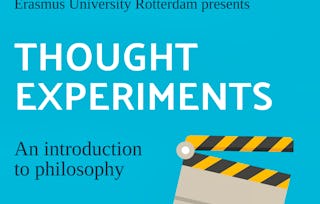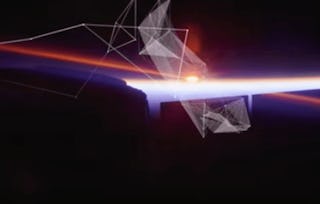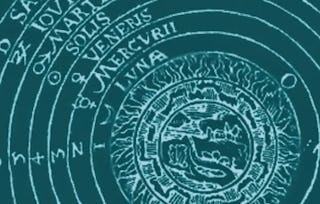La métaphysique spéculative est un défi, mais ce cours vous mettra en appétit, car il explique les problèmes et les points de vue métaphysiques fondamentaux en termes de ce que vous pouvez trouver dans votre cuisine et de ce qui s'y passe lorsque vous cuisinez et dégustez des aliments. Voici les 8 bouchées au menu : - Le premier module 1 explique que la métaphysique concerne les ingrédients et les recettes du monde, c'est-à-dire les types d'entités qui existent et leurs relations mutuelles ; - Les modules 2 et 3 vous invitent à réfléchir à la question de savoir si les propriétés des ingrédients - telles que leur forme et leur poids - sont distinctes des ingrédients et, dans l'affirmative, comment elles se combinent dans les ingrédients ; - Les modules 4 à 7 concernent la cuisine : son ingrédient le plus important est le temps et la majeure partie de la cuisine consiste à provoquer des changements dans les ingrédients au fil du temps ; toutefois, certains ingrédients persistent : bien qu'ils subissent des changements, ils sont toujours présents dans la cuisine. Cependant, certains ingrédients persistent : bien qu'ils subissent des changements, ils restent les mêmes. En outre, la cuisine consiste au minimum à mettre deux ou plusieurs ingrédients ensemble, de manière à ce qu'ils forment un tout. Les modules 4 à 7 traitent donc respectivement du temps, de la causalité, de la persistance et de la composition. Enfin, le dernier module aborde les odeurs, les goûts et d'autres aspects qualitatifs de nos expériences lors de la dégustation d'aliments. Bon appétit !

Reality Bites : Introduction à la métaphysique

Reality Bites : Introduction à la métaphysique

Instructeur : Tim De Mey
4 123 déjà inscrits
Inclus avec
18 reviews
Expérience recommandée
Compétences que vous acquerrez
- Catégorie : Esthétique
Détails à connaître

Ajouter à votre profil LinkedIn
9 devoirs
Découvrez comment les employés des entreprises prestigieuses maîtrisent des compétences recherchées

Il y a 8 modules dans ce cours
Le module d'introduction explique ce qu'est cette chose appelée métaphysique et de quoi il s'agit, à savoir : la métaphysique concerne tout et n'importe quoi. De plus, la semaine 1 introduit l'ontologie comme le cœur de la métaphysique, et explique ses principes méthodologiques les plus fondamentaux, comme la parcimonie, et ses outils méthodologiques, comme la méthode de Quine pour déterminer les engagements ontologiques d'une personne.
Inclus
4 vidéos1 lecture1 devoir1 sujet de discussion
Le deuxième module traite du problème le plus célèbre et le plus infâme de toute l'histoire de la métaphysique, à savoir le problème des universaux. Alors que les objets ou "particuliers" ne peuvent se trouver qu'à un seul endroit en même temps, les propriétés semblent être présentes à de nombreux endroits en même temps. Cela soulève la question de savoir si les propriétés sont, contrairement aux particuliers, des "universaux" transcendants ou immanents. Les propriétés peuvent également être réduites à des classes de particuliers, à des ressemblances entre particuliers ou à des "tropes", c'est-à-dire à des particuliers abstraits.
Inclus
4 vidéos1 lecture1 devoir1 sujet de discussion
À plus d'un titre, le problème de la substance est l'inverse du problème des universaux. Si deux objets partagent toutes leurs propriétés, qu'est-ce qui les distingue l'un de l'autre ? Et comment les objets portent-ils leurs propriétés ? Faut-il des propriétés pour pouvoir porter des propriétés ? Ou, si cela déclenche une régression à l'infini, les substances sont-elles des substrats sans propriétés, des substrats nus ? Ou de simples ensembles de propriétés, qu'il s'agisse d'universaux ou de tropes ? Ou encore, les substances sont-elles des particuliers épais ou minces ?
Inclus
4 vidéos1 lecture1 devoir1 sujet de discussion
Nous pensons tous savoir que le temps passe. Mais le temps et son prétendu passage posent d'intéressants problèmes métaphysiques. Tout d'abord, seuls les objets et les personnes qui existent aujourd'hui existent-ils vraiment ? Ou bien les objets et les personnes du passé ? Ou peut-être même des objets et des personnes futurs ? Par ailleurs, le temps est-il réel ? Car, comme l'affirme McTaggart, si le changement est fondamental dans le temps, l'ordonnancement des événements en termes de passé, de présent et de futur est, d'une part, fondamental et, d'autre part, incohérent.
Inclus
3 vidéos1 lecture1 devoir1 sujet de discussion
Si un événement en provoque un autre, existe-t-il une relation de nécessité entre les deux ? Hume a soutenu qu'il n'y avait pas de nécessité naturelle et a proposé de réduire la causalité soit à la régularité, soit à la dépendance contrefactuelle. Cependant, il existe de nombreuses objections et alternatives au Humeanisme. Peut-être la causalité est-elle singulière, simple ou plutôt diverse.
Inclus
4 vidéos1 lecture1 devoir1 sujet de discussion
Les objets peuvent subir des changements tout en restant identiques dans le temps. Ils "persistent". Mais qu'est-ce que cela signifie ? Qu'est-ce que cela implique ? Dans ce module, nous comparons les conceptions et les arguments pour et contre quatre points de vue sur la persistance. Notre point de départ est l'énigme classique du bateau de Thésée.
Inclus
3 vidéos1 lecture1 devoir1 sujet de discussion
La question de la composition spéciale est la question de savoir quand des objets réunis deviennent des parties d'un tout ? Bien qu'il soit intuitif que c'est parfois le cas et parfois non, il s'avère notoirement difficile de définir un critère. Cela incite de nombreux métaphysiciens à défendre des réponses extrêmes : soit qu'il n'existe pas d'objets composites du tout, soit que chaque combinaison d'objets disparates constitue un autre objet composite.
Inclus
4 vidéos1 lecture1 devoir1 sujet de discussion
Dans le dernier module, c'est notre relation au monde indépendant de l'esprit qui est en jeu. Certaines propriétés, comme les couleurs et les sons, sont-elles des qualités secondaires, c'est-à-dire qu'elles n'existent dans le monde qu'en tant que dispositions à déclencher certaines réponses ou expériences en nous ? Et quelle est la portée de ces qualités secondaires, de cette dépendance à l'égard des réponses ?
Inclus
4 vidéos1 lecture2 devoirs1 sujet de discussion
Instructeur

Offert par
En savoir plus sur Philosophie
 Statut : Prévisualisation
Statut : PrévisualisationErasmus University Rotterdam
 Statut : Essai gratuit
Statut : Essai gratuitDartmouth College
 Statut : Prévisualisation
Statut : PrévisualisationThe Hong Kong University of Science and Technology
 Statut : Essai gratuit
Statut : Essai gratuitDartmouth College
Pour quelles raisons les étudiants sur Coursera nous choisissent-ils pour leur carrière ?

Felipe M.

Jennifer J.

Larry W.

Chaitanya A.
Avis des étudiants
- 5 stars
66,66 %
- 4 stars
22,22 %
- 3 stars
5,55 %
- 2 stars
5,55 %
- 1 star
0 %
Affichage de 3 sur 18
Révisé le 14 mai 2024
Excellent course! Well presented. Useful and interesting. Not for beginners.

Ouvrez de nouvelles portes avec Coursera Plus
Accès illimité à 10,000+ cours de niveau international, projets pratiques et programmes de certification prêts à l'emploi - tous inclus dans votre abonnement.
Faites progresser votre carrière avec un diplôme en ligne
Obtenez un diplôme auprès d’universités de renommée mondiale - 100 % en ligne
Rejoignez plus de 3 400 entreprises mondiales qui ont choisi Coursera pour les affaires
Améliorez les compétences de vos employés pour exceller dans l’économie numérique
Foire Aux Questions
Pour accéder aux supports de cours, aux devoirs et pour obtenir un certificat, vous devez acheter l'expérience de certificat lorsque vous vous inscrivez à un cours. Vous pouvez essayer un essai gratuit ou demander une aide financière. Le cours peut proposer l'option "Cours complet, pas de certificat". Cette option vous permet de consulter tous les supports de cours, de soumettre les évaluations requises et d'obtenir une note finale. Cela signifie également que vous ne pourrez pas acheter un certificat d'expérience.
Lorsque vous achetez un certificat, vous avez accès à tous les supports de cours, y compris les devoirs notés. Une fois le cours terminé, votre certificat électronique sera ajouté à votre page de réalisations - à partir de là, vous pouvez imprimer votre certificat ou l'ajouter à votre profil LinkedIn.
Oui, pour certains programmes de formation, vous pouvez demander une aide financière ou une bourse si vous n'avez pas les moyens de payer les frais d'inscription. Si une aide financière ou une bourse est disponible pour votre programme de formation, vous trouverez un lien de demande sur la page de description.
Plus de questions
Aide financière disponible,

